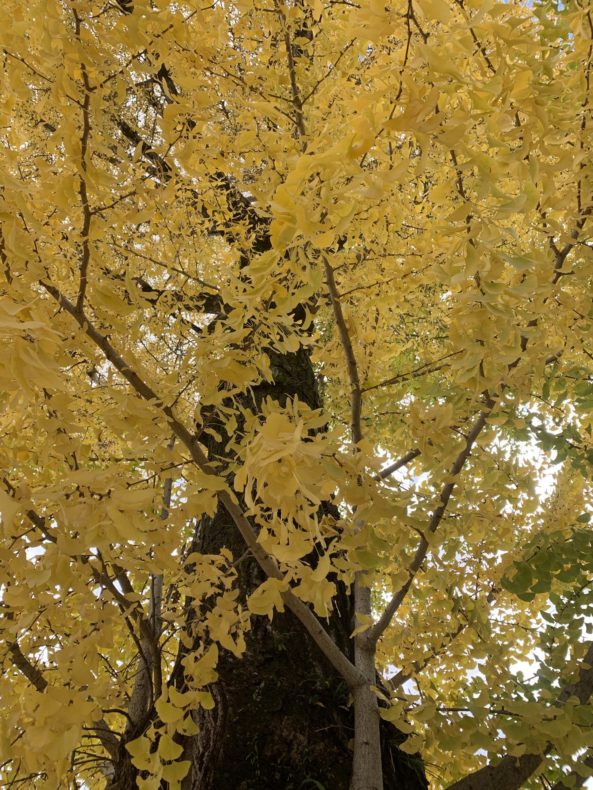
I fell in love in Japan. He was older, and so very tall. There was a glow about him, warm as sunshine. I could have sat and watched him for hours. Even though we didn’t have that much time together, I knew I would never forget him. He was so present, so grounded. Resilient after years of living, marked by all of the storms, both meteorologic and political, that he had weathered.
And so alone—not just on that path near Nijo Castle, but in the world. He had no living relatives. On a family tree, he would sit on a distant, dangling branch, separated from his kin by millions of years. And there was something about this solitude that was irresistible, too.
The ginkgo tree is an island in the arboreal world. Ginkgo flourished during the Cretaceous, with five or six species growing in the Northern Hemisphere. But as time passed, the number of species shrank to a single species with fan shaped leaves. It disappeared from Europe and North America. The survivors found themselves in China, where, years and years later, humans began to protect and cultivate them, and ultimately, bring them elsewhere—to Japan, to Korea, to Berlin and Central Park. There is even one on my street, growing out of the planting strip, coming up to my shoulder.
Ginkgos are known to be resilient, thriving in urban areas that cause other trees to wither. In Hiroshima, ginkgo trees began growing new shoots in the days after the atomic bomb killed 70,000 people instantly. People would continue to die in the months and years that followed, but the ginkgo trees unfurled their green fans again the next spring. They still do. About 170 trees, known as hibakujumoku, survive today.
But none is so appealing than my dear tree, thousands of miles away now. I’m not sure what drew me to him above all other ginkgos. Perhaps he was the first one who helped me feel the deep time of a tree that extends further backward and forward than I can ever imagine. Time that feels like golden autumn light.
*
Photo: Cameron Walker
This would be a more effective essay if the author spelled ginkgo properly.
Tom, you’re so right! Love makes you blind to spelling errors. I’ll fix it.